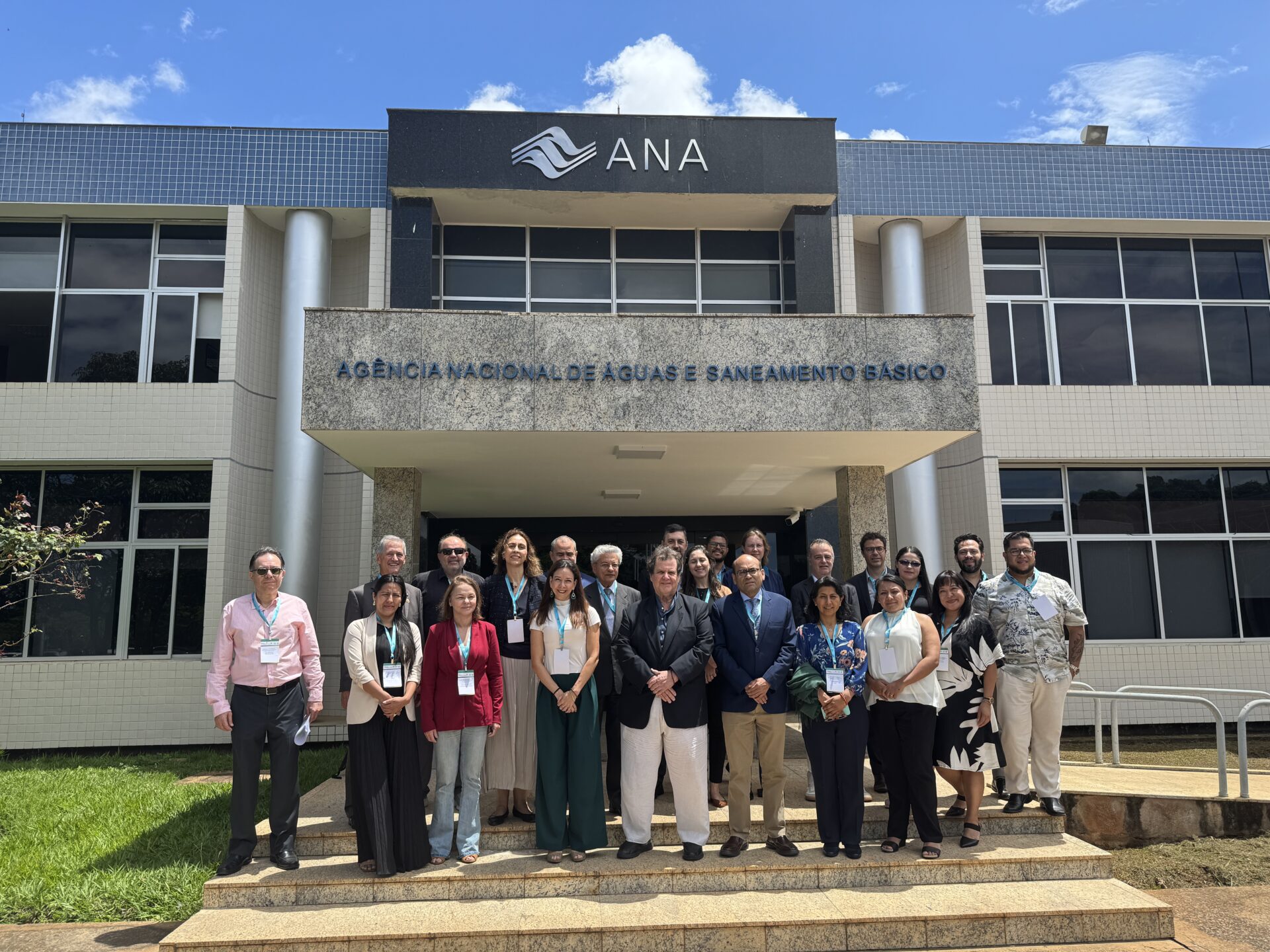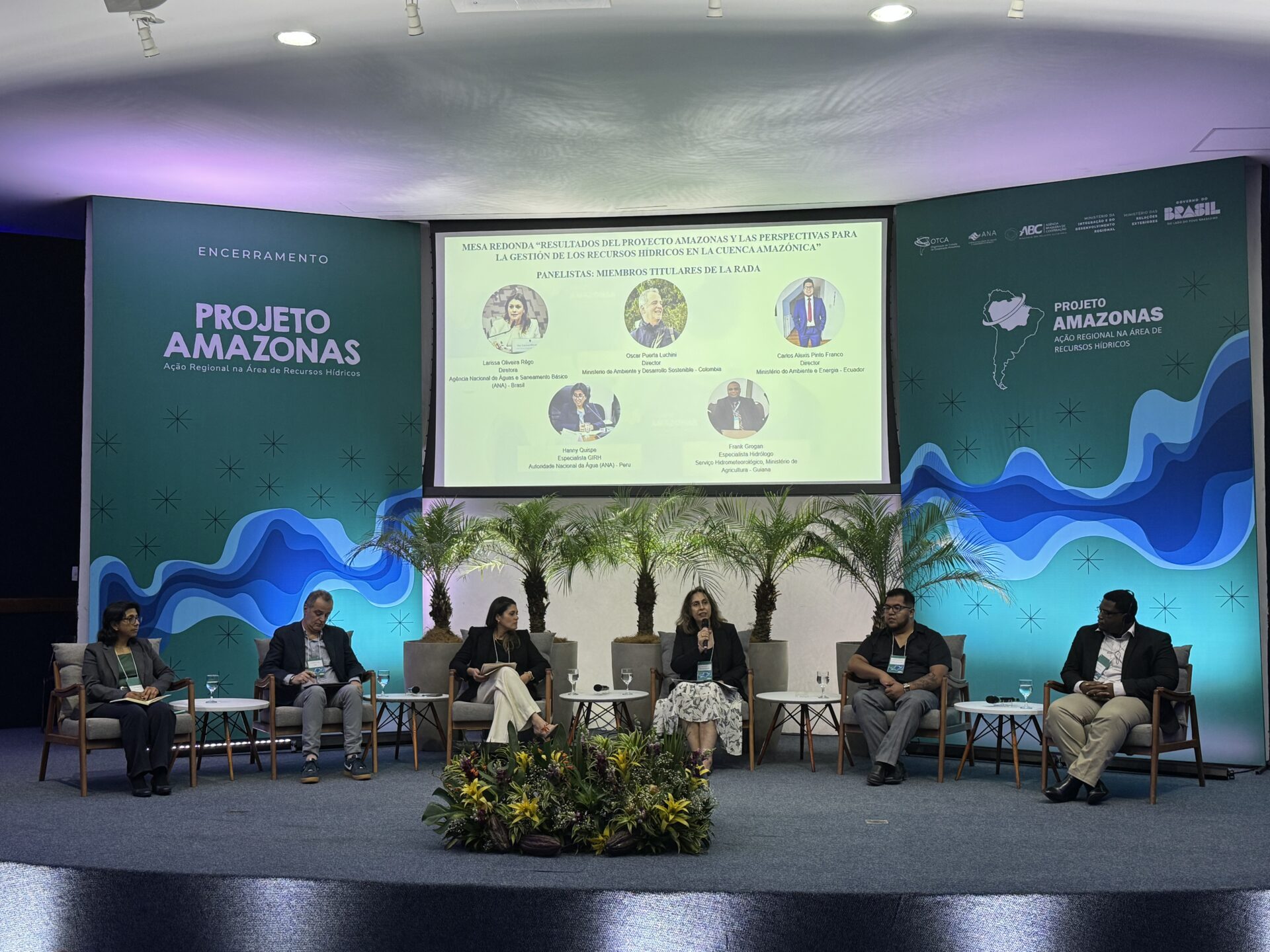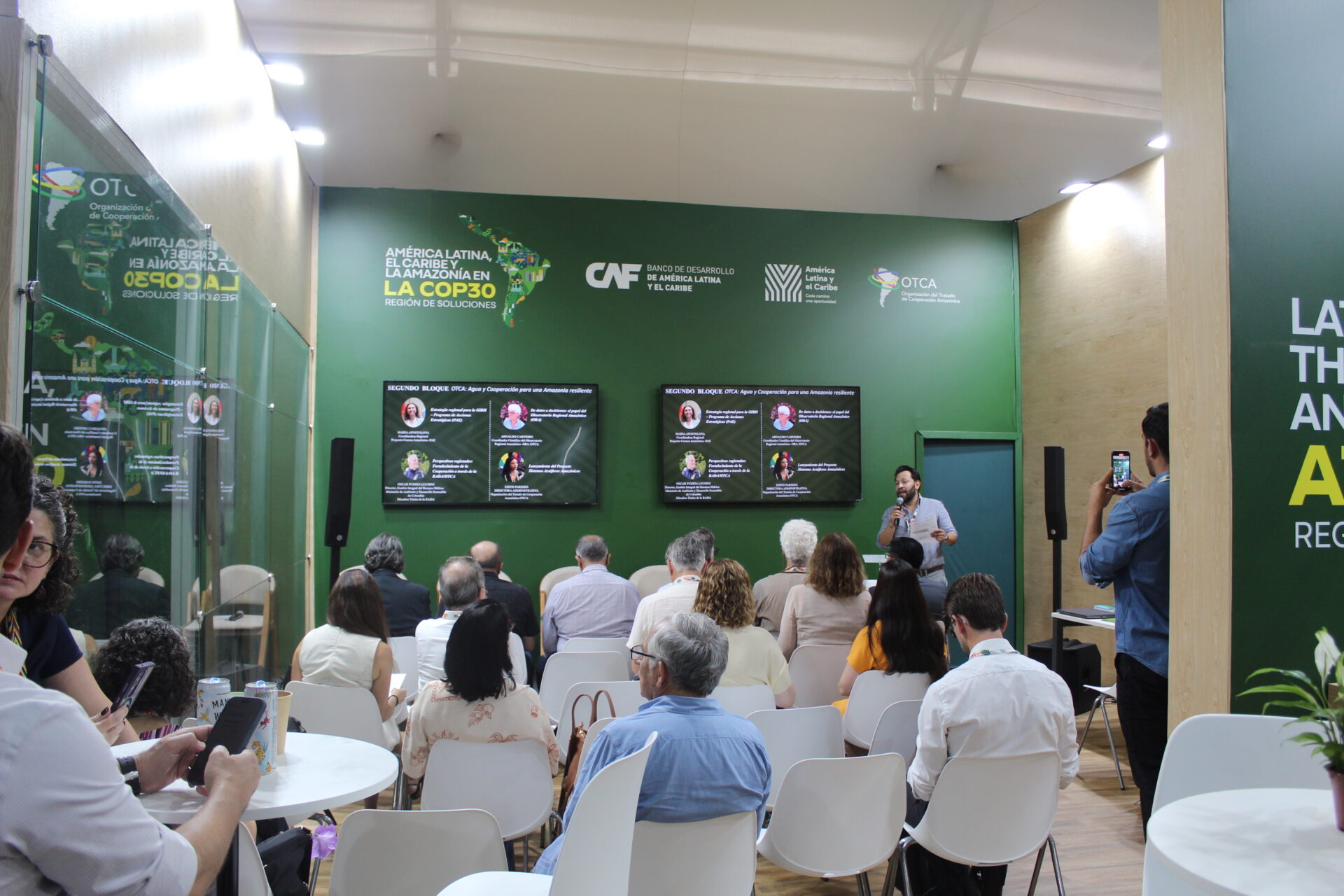Index
Topics
Aguas subterráneas, Amazon Aquifer Systems (AAS), Amazon Cooperation Treaty Organization (ACTO), GEF - Fundo Global para o Meio Ambiente (FMAM), Integrated Water Resource Management (IWRM), Inter-American Development Bank (IDB), Project Identification Template (PIF), United Nations Environment Programme (UNEP)
Share
The Permanent Secretariat of the Amazon Cooperation Treaty Organization (PS/ACTO), together with UNEP and IDB, presented the PIF (Project Identification Form) proposal “Towards a better understanding of the Amazon Aquifer Systems for their protection and sustainable management” to the Global Environment Facility (GEF-8). This proposal was approved on June 26 by the Council of the Global Environment Facility (GEF) to promote the governance and sustainable management of the Amazon aquifer systems.
Commitment of ACTO Member Countries to Groundwater Protection
The proposal was jointly developed by the eight ACTO Member Countries: Bolivia, Brazil, Colombia, Ecuador, Guyana, Peru, Suriname, and Venezuela. These countries demonstrated their support and commitment to this important project by working for more than two years on its detailed technical preparation in an agreed manner. The project also had the support of the implementing agencies of the United Nations Environment Programme (UNEP) and the Inter-American Development Bank (IDB). The approved proposal is for an amount of $15 million.
The demand for water in quantity and quality has increased in the Amazon basin, and despite the large volume of surface water in the region, all countries extensively use groundwater as an alternative source of safe water. Groundwater is mainly threatened by uncontrolled exploitation, contamination (urban and from economic activities), and the effects of climate change, which affect water quality, aquifer levels, recharge, and changes in groundwater regimes.
Groundwater in the Amazon basin plays an important role in hydrological and ecological cycles and greatly influences the tropical rainforest ecosystems and climate variability, especially during the dry season.
The project seeks to promote a common understanding of the Amazon Aquifer Systems (AAS) to strengthen existing regional governance and the integrated management of groundwater for its protection and sustainable use, thereby improving water security and the resilience of ecosystems in the Amazon region.
This project is expected to generate direct environmental and water supply benefits for approximately 2,255 direct beneficiaries involved in the pilot projects and also achieve 3,650 hectares under better sustainable practices and aquifer protection, under a collaborative management approach for the Amazon basin, understanding the Amazon aquifers as an integrated system.
Related news
Post
17 de December de 2025
On December 11, the Amazon Basin Project (ACTA/UNEP/GEF) held a Seminar on the Exchange of Cooperation Experiences for the Management [...]
Post
16 de December de 2025
The roundtable discussion “Results of the Amazon Project and Prospects for Water Resource Management in the Amazon Basin” was held [...]
Post
28 de November de 2025
Water is the central element through which most of the impacts of climate change manifest themselves: more intense droughts, extreme [...]




